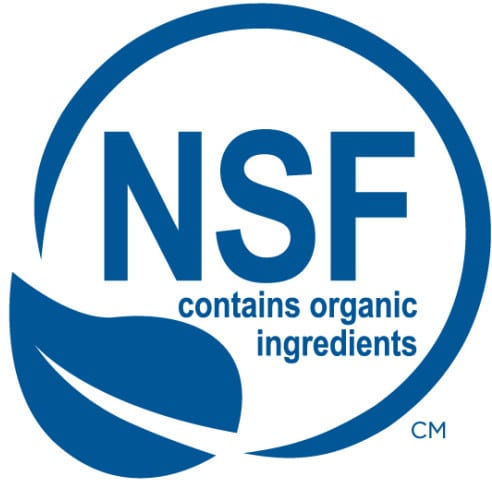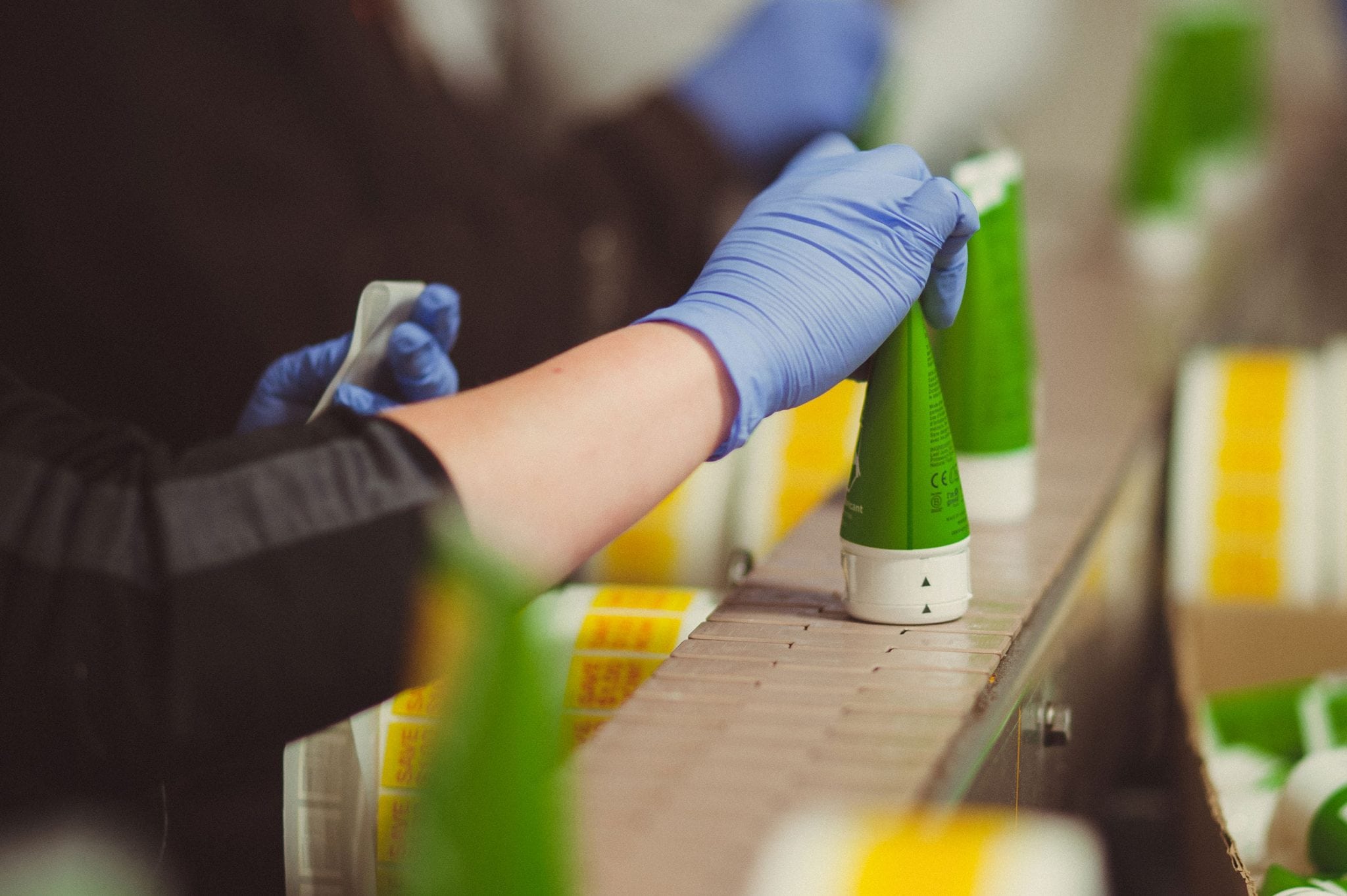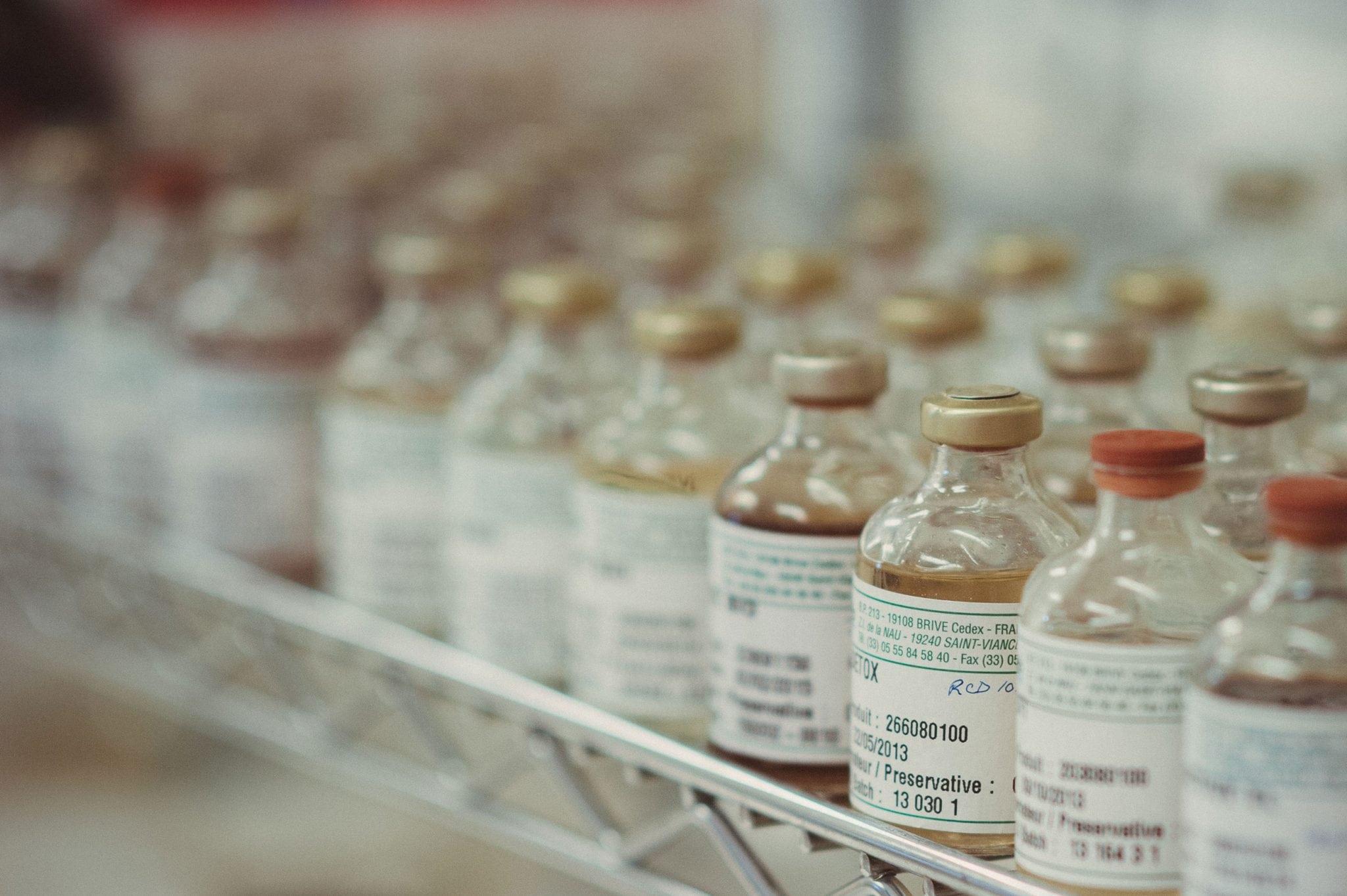How an organic cert. was made for personal care
In this post we’ll discuss the creation of the NSF/ANSI 305 standard, which was established in 2009, and a little of how the market is responding to this certification.

What is the NSF/ANSI 305 standard?
The NSF/ANSI 305 standard was created in 2009 to fill the need for an appropriate organic personal care products standard. This standard is the only American national standard for the manufacturing and labeling of personal care products that contain organic ingredients and make organic claims (Oregon Tilth).
NSF International, the creators of this standard, are a highly reputable public health certification agency recognized by the FDA, EPA, and the USDA for their work in non-food compound product registration. The American National Standard Institute (ANSI), a non-profit organization that assists in the development of U.S. voluntary national standards, assisted in the standard’s development and adoption.
How ANSI/NSF 305 works
Like the USDA NOP standard, the NSF/ANSI 305 standard places restrictions on the materials and ingredients used to formulate and manufacture products. The most beneficial element of the NSF/ANSI 305 standard is that it allows organic ingredients to be processed with manufacturing methods and with substances not authorized under the USDA organic certification. These allowed methods and substances have been examined by the NSF International Joint Committee on Organic Personal Care and approved for organic personal care use. Check out Oregon Tilth’s NSF/ANSI 305 Fact Sheet here to learn more about the standard.
A few of the standard’s requirements include:
- At least 70% of your product must be made with USDA NOP approved organic ingredients
- No GMO-derived ingredients in your product
- No petrochemical based ingredients in your product unless they are approved by NSF International
Labels you can use
Certification under this standard allows personal care products to make a “contains organic ingredients” claim. Your product’s packaging can also feature the NSF International label alongside the certifying agent’s label, Oregon Tilth in our case, to assure customers the product has been evaluated and holds up to organic standards.
Wholefoods Recognizes the Importance of NSF/ANSI 305
Wholefoods is a proponent of this new standard, and we are sure to see others. Back in 2010, Joe Dickson, the Global Quality Standards Coordinator at Whole Foods Market and a member of the National Organic Standards Board, stated that Whole Foods Market will require any personal care product sold in their store making a “contains organic ingredients” claim to be certified through the NSF/ANSI 305 standard. Dickson explained the importance of Whole Foods Market’s decision in enforcing the NSF/ANSI 305 standard in this statement:
“This will make it easier for shoppers to trust organic labels in our stores, and help the organic personal care products’ market evolve and grow” (Dickson)**.
**The blog article was located at: (http://www.wholefoodsmarket.com/blog/whole-story/huge-step-organic-body-care)
Conclusion
Two organic standards are available for your product, but only one of them was designed with personal care product in mind. It’s important to understand the differences of these two standards since they impact how and when you can bring product to market. Being an organically certified manufacturer for years, BPI Labs stands ready to help you organically certify your personal care product.
Our Blogs
Part 1: Perfect Sticky Label Needs
Getting sticky labels right If you want that perfect package to product fit that screams quality to your...
Our Formulas Have These 6 Things for Completeness
Introduction BPI Labs’ formulas contain 6 elements that assure product perfectiveness each time we manufacture your...
Turning Your Recipes into Cosmetic Formulas
Why we need your recipe to be a formula We use the language of recipes and formulas to make a distinction between a...



